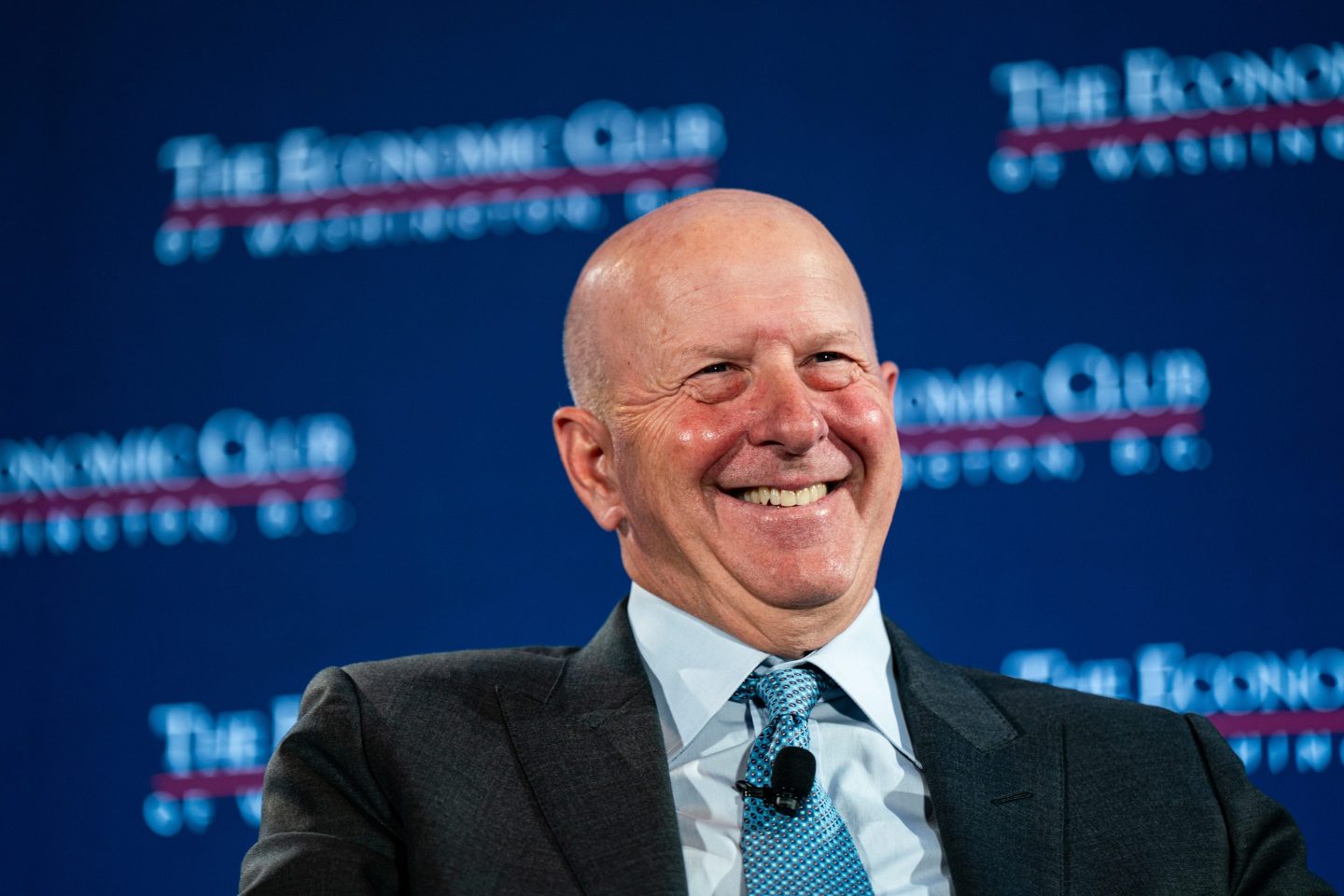Goldman Sachs economists have been particularly bullish over the past few years. When most of his Wall Street peers warned that rising interest rates and high inflation meant a recession was imminent in 2022 and 2023, Goldman Sachs chief economist and head of global investment research Jan Hatzius put the odds of that dire outcome in a range of 15% to at most 35%.
The bullish call proved prescient last year, with the economy running strong and most Wall Street forecasters abandoning their recession calls in favor of a “soft landing” scenario—where inflation fades and the economy avoids a recession, but growth proves anemic at best.
Over the past few months, however, after a few hot inflation and jobs reports, many of Wall Street’s prognosticators have shifted their forecasts once again to a “no landing” scenario—where economic growth remains strong, but inflation also remains an issue.
Continuing their contrarian streak, Goldman Sachs economists have a different, more bullish view. In a Friday note to clients, a team led by the investment bank’s chief U.S. Economist David Mericle said they expect “much stronger” GDP growth in 2024 (2.5%), a significant drop in inflation, and three interest rate cuts from the Federal Reserve. It’s a sort of Goldilocks forecast for the economy that seems paradoxical, on its face. Goldman economists say you could be forgiven for thinking so.
“We are often asked whether these forecasts aren’t contradictory—won’t stronger growth prevent inflation from falling or even reignite it? We don’t think so, for two reasons,” they wrote.
First, the team explained that supply-side economic growth should prevent supply-demand imbalances and labor market tightness that drives inflation. Elevated immigration, for example, is increasing the size of the labor force, preventing wages from surging in a way that could reignite inflation. “So far measures of labor market tightness have continued to fall or move sideways, not rise, despite strong GDP growth,” Goldman’s economists wrote. “We expect these measures to remain roughly where they are through the remainder of this year.”
And even if the labor market does tighten further—i.e., the unemployment rate falls or job openings rise—the impact on inflation “would be quite small compared to the impact of the major disinflationary forces we expect this year,” according to Mericle and his team.
Significant post-pandemic disinflationary forces are the second major reason why Goldman’s economists believe inflation can fall in 2024, even as economic growth rises. The first of these forces is the “catch-down” effect of the Fed’s lagging shelter inflation data. Goldman’s economists have long argued that the Fed’s measure of shelter inflation lags the reality on the ground, where home and rent prices are barely rising, leading to higher cumulative official inflation numbers. That trend should fade this year, leading to a two percentage point drop in shelter inflation in 2024, according to Goldman’s calculations.
On top of that, pandemic-era shortages and supply-chain issues have been “resolved,” inventories are rising, and “competition is kicking back in,” the economists said. That should lead to falling prices for things like cars, in particular, where part shortages caused prices to soar during the pandemic. With “the final echoes of the 2022 inflation surge” fading, we really “can have both strong growth and lower inflation,” according to Goldman Sachs.
Of course, not everyone is so bullish. Just this week, JPMorgan Chase CEO Jamie Dimon argued in his annual letter to shareholders that he’s preparing for a range of economic scenarios, including one where interest rates spike to “8% or even more.”
Dimon said investors should “beware” of the potential for higher interest rates and a recession, adding that “economically, the worst-case scenario would be stagflation, which would not only come with higher interest rates but also with higher credit losses, lower business volumes, and more difficult markets.” In this regard, Dimon was echoing the flood of predictions from economists in 2022 that the economy was headed for a repeat of the stagflationary 1970s.
Apollo Global Management’s chief economist, Torsten Slok, has also repeatedly warned that he believes the Fed won’t be able to cut rates at all in 2024, with inflation proving difficult to tame. The veteran market watcher fears investors are reliving the 1990s tech bubble amid the AI boom as well, and things typically don’t end well during periods of rising rates with bubbly stock valuations.













